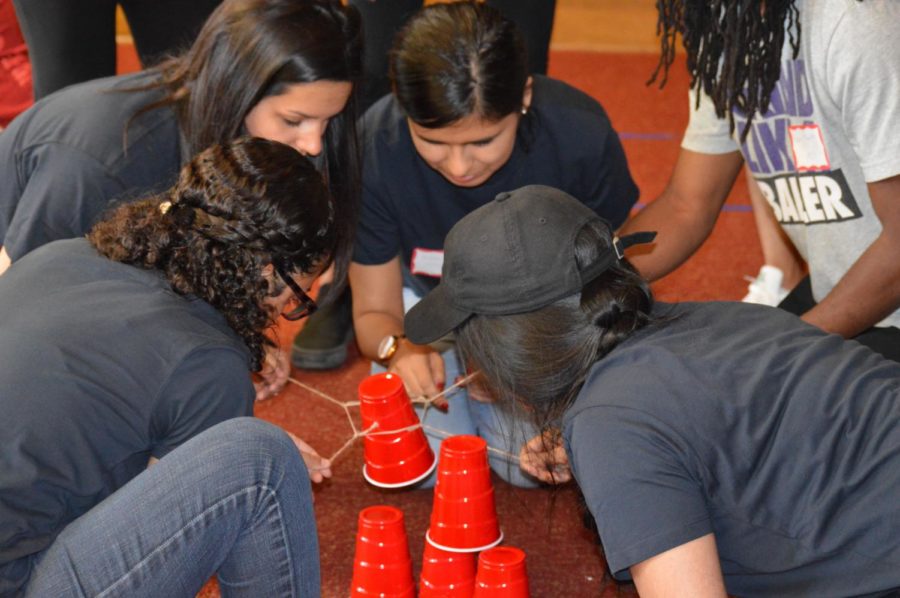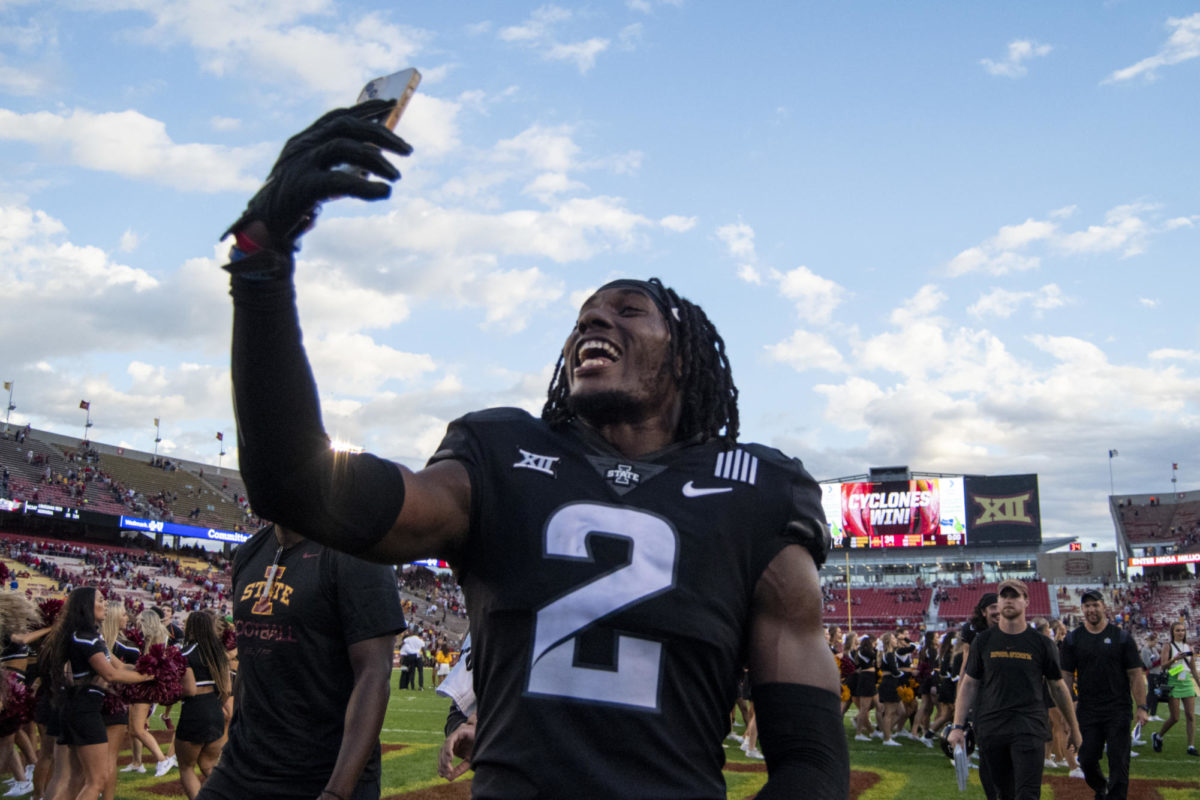Campaign trail includes stop at Ames High School
September 3, 1996
As the 1996 elections draw near, the campaign trail is becoming a crowded superhighway. Ames High School was a stop on the trail for U.S. House of Representatives hopeful Mike Mahaffey and Sen. Charles Grassley.
Although Grassley is not up for reelection, he has been promoting Mahaffey’s campaign in the third district of Iowa, which includes Ames and most of the southern Iowa counties. Story County is the most urban area in the predominantly rural district, Mahaffey said.
Mahaffey, a lawyer from Montezuma, has been the county attorney in Poweshiek County for a number of years, and once served as chair of the Iowa Republican Party. He began his campaign in March, after Jim Ross Lightfoot vacated the seat in order to run against Democratic Sen. Tom Harkin.
Last Thursday, Mahaffey told the high school students that he has a few promises for Iowans in his district. In addition to working towards a balanced budget, he plans to change entitlement programs such as social security and Medicare
As he stressed “faith across generations,” Mahaffey said the baby boomer generation is better off than their parents. However, the baby boomer’s children are in a worse situation because social security is going downhill. As the enormous baby boomer generation retires, their children will have to support them.
One high school student said the social security problems will affect him in the future. “I’d say that social security is very important to me,” said AHS sophomore Beau Biskner. He said the money he makes will have to go to support the large baby boomer generation when they go on social security.
Student loans are also included in the entitlement program.
“I personally feel education is one of the most important issues,” said Mahaffey. By balancing the budget and decreasing the deficit, Mahaffey said, the amount of money available to education will increase.
Grassley said he doesn’t foresee any decrease in financial aid to college students. Because loans and grants have increased on schedule, a student’s eligibility stays the same. The only change in the student aid programs within the last few years was an increased percentage of administrative costs, Grassley said.
Mahaffey said that, because of his experience as a county attorney, he would make a good candidate because he “can see what government does for people and to people.” But the AHS students had a few questions about Mahaffey’s views on some more controversial issues.
Questions from the students included the legalization of marijuana, abortion, same-sex marriages and defense.
Mahaffey said he doesn’t support the legalization of marijuana because it “sends the wrong message to all of us, especially young people.” He said the war on drugs is an important role of the government.
Concerning Mahaffey’s position on abortion, he said it is a political and moral issue, but he said states should decide their own restrictions. One student spoke out and said abortion is a personal issue, not a political one.
Mahaffey said he is not in favor of same-sex marriages.
He also said Congress should look at the wasted spending of the Pentagon and other defense sectors.
Although most of the students are not old enough to vote, some said that issues do matter to them.
Jenny Lewis and Rachel Strom, both high school juniors, said the government needs to change the way it handles foreign affairs. “I think the way we handle some of our foreign affairs is wrong,” Strom said. She said the government sticks its nose into where it doesn’t belong. Lewis said,”We get in it for the wrong reasons.”
Umar Mujeeb, a junior, said the government needs to change and listen to the people. “The people’s voices should be heard, not the businesses,” he said. The politicians should say how they are going to accomplish their goals, he added. Mujeeb also thinks the republicans and democrats shouldn’t work against each other so much.
In addition, students stressed the importance of family values, health care, wasteful spending, college financial aid and homosexual rights.
Although these students have their beliefs, many of them are unsure about the 1996 presidential election.
“Clinton had a lot of good ideas,” Strom said,”but I think his time is over. I am leaning a little towards Dole.” But Lewis, Strom’s friend, said, “I don’t want Dole to win. I don’t know about Clinton. There are other people.”
Briskner said he doesn’t know who he’d vote for if he was old enough, but he doesn’t like negative advertising. “I like the truth. I don’t care what they say they’re going to do,” he said.
















